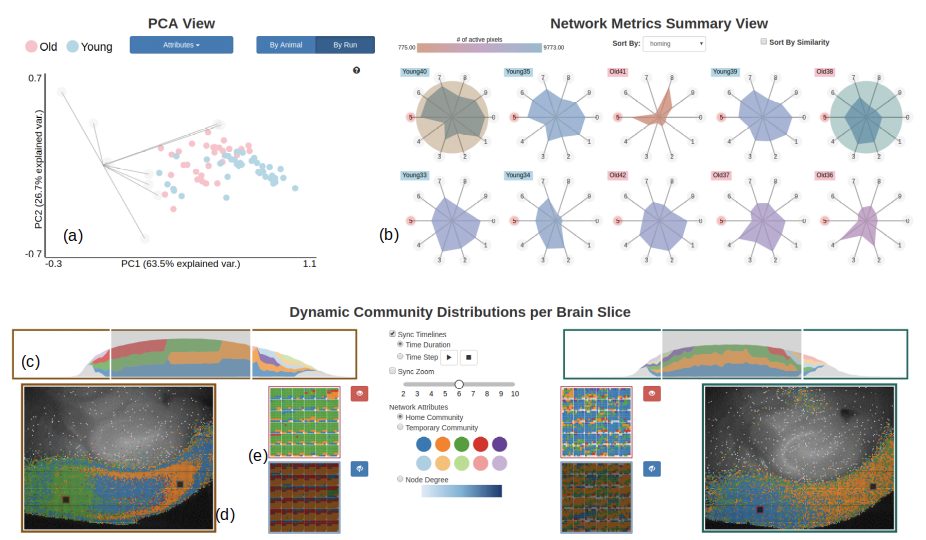Visual Analysis Techniques for Dynamic Biological Networks
April 1st, 2018
Categories: MS / PhD Thesis, Software, Visualization, Visual Analytics, Visual Informatics

Authors
Ma, ChihuaAbout
Recent neuroscience research indicates that cognitive operations are performed not by individual brain regions working in isolation, but by networks that consist of several discrete brain regions. These discrete brain regions act in synchrony and share functional connectivity. The study of brain networks contains both non-spatial data dynamic functional connections within the brain and spatial data 2D/3D medical scans of the brain. To further understand the relationships between dynamic functional connectivities and physical structures of the brain, researchers analyze dynamic brain networks over multiple experiments or with different models. Similarly, bioinformatics research also contains problems about dynamic biological networks that require the integration of spatial and nonspatial data and multi-run comparison. Due to the complexity of biological data that can be collected, modeled and analyzed thanks to technological and algorithmic advancements, the difficulty in studying biological networks has increased over the last decades. Visualization provides an efficient way to help biologists understand, communicate, and gain insight into their biological data through visual exploration and analysis.
In this dissertation, I propose a set of visual approaches for the analysis of ensemble dynamic biological networks. This set of approaches took shape through the development of multiple prototype visual analytics tools which were aimed to solve complex problems in multiple biological subdomains. The steering of the approach was supported through an in-depth understanding of both the encompassing biological domains and problem space, as well through a survey of existing visual approaches helping to generalize the paradigms used when confronting these problems and the complexity of their data.
Resources
Citation
Ma, Chihua, Visual Analysis Techniques for Dynamic Biological Networks, Submitted in partial fufillment of the requirements for the degree of Doctor of Philosophy in Computer Science, Graduate College of the University of Illinois at Chicago, April 1st, 2018.